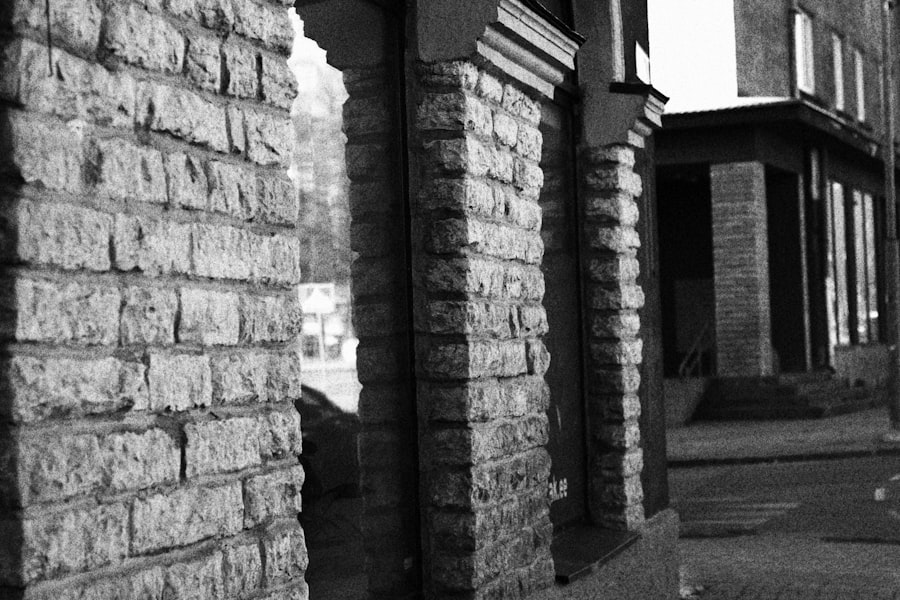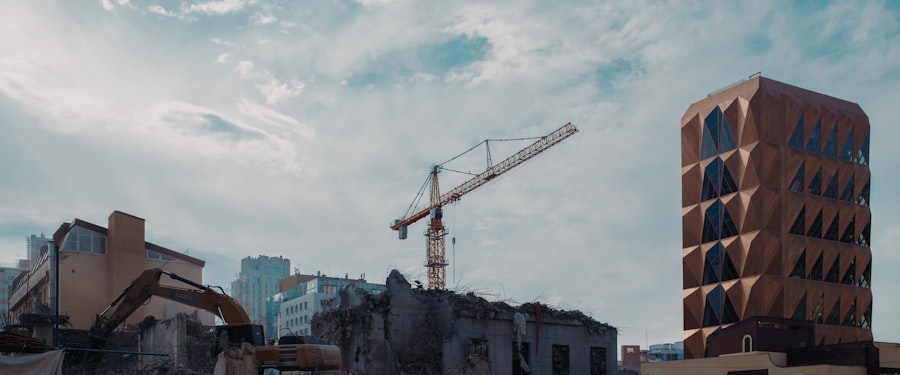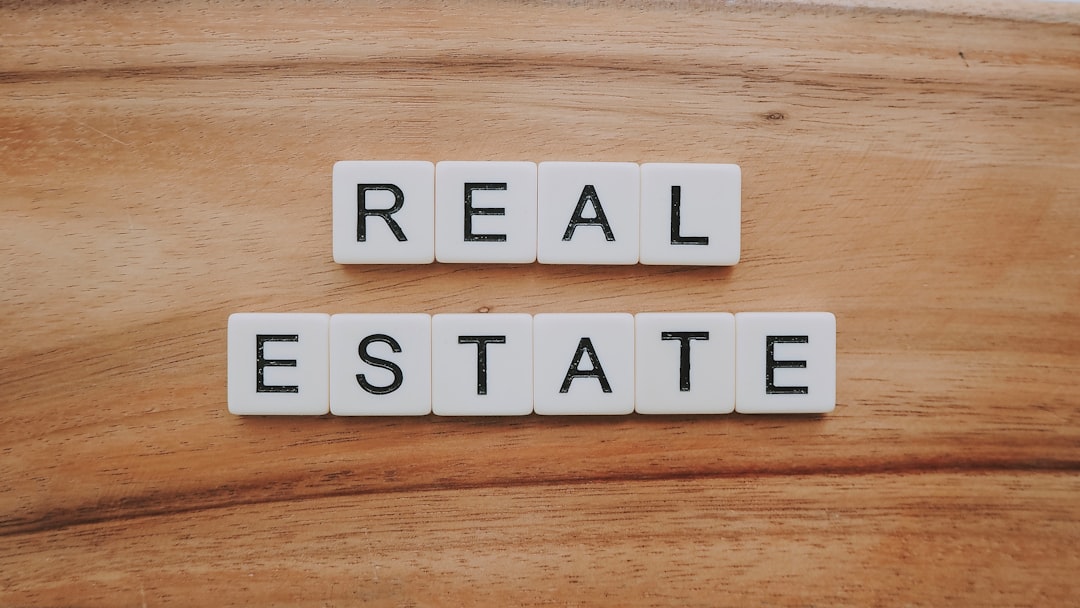Real estate speculation in New York City has become a prominent topic of discussion among economists, urban planners, and residents alike. The city, known for its iconic skyline and vibrant neighborhoods, has long attracted investors seeking to capitalize on its dynamic property market. Speculation, defined as the practice of buying properties with the expectation that their value will increase, has led to both opportunities and challenges within the urban landscape.
As the city continues to evolve, the implications of speculative practices on housing, affordability, and community stability have garnered increasing attention. The allure of New York City’s real estate market is undeniable. With its diverse economy, cultural richness, and global significance, the city presents a unique environment for investors.
However, this same allure has contributed to a volatile market characterized by rapid price fluctuations and intense competition. As investors flock to the city, the consequences of speculation ripple through various aspects of urban life, affecting not only the financial landscape but also the social fabric of neighborhoods. Understanding the nuances of real estate speculation is essential for grasping its broader implications on the city’s housing market and its residents.
Key Takeaways
- Real estate speculation in NYC has a significant impact on housing affordability, market instability, and neighborhood gentrification.
- Speculation can lead to displacement of long-term residents and influence property taxes and city revenues.
- Individual investors face risks such as market volatility and potential losses due to speculation in real estate.
- Speculative bubbles in NYC real estate pose a threat to the stability of the market and rental dynamics.
- Regulatory responses and strategies for mitigating the risks of real estate speculation are crucial for maintaining a balanced and sustainable real estate market in NYC.
The Impact of Speculation on Housing Affordability
The impact of real estate speculation on housing affordability in New York City is profound and multifaceted.
This heightened demand can lead to skyrocketing property values, making it increasingly difficult for average residents to afford homes in their own neighborhoods.
The result is a growing divide between those who can participate in the market and those who are priced out, exacerbating existing inequalities. Moreover, speculation often leads to the conversion of rental units into luxury condominiums or high-end apartments, further diminishing the availability of affordable housing options. As landlords seek to maximize profits, long-term tenants may find themselves facing rent increases or eviction.
This cycle not only displaces individuals and families but also alters the character of neighborhoods that have historically been home to diverse communities. The struggle for affordable housing in New York City is thus intricately linked to the speculative practices that drive up property values and reshape the urban landscape.
The Role of Speculation in Real Estate Market Instability

Speculation plays a significant role in contributing to real estate market instability in New York City. The influx of investors seeking quick returns can create an environment where property values fluctuate dramatically based on market sentiment rather than fundamental economic indicators. This volatility can lead to boom-and-bust cycles, where rapid price increases are followed by sharp declines, leaving both investors and residents vulnerable to financial losses.
Additionally, speculative behavior can distort market signals, making it challenging for potential homebuyers to gauge true property values. When prices are driven up by investor demand rather than genuine interest from end-users, it creates an artificial sense of value that can collapse when market conditions change. This instability not only affects individual investors but also has broader implications for the city’s economy, as fluctuations in real estate values can impact tax revenues and overall economic growth.
Risks of Speculation for Individual Investors
| Types of Risks | Description |
|---|---|
| Market Risk | The risk of investments losing value due to economic developments or other events that affect the entire market. |
| Liquidity Risk | The risk of not being able to sell an investment quickly at a fair price. |
| Volatility Risk | The risk of investments experiencing large price fluctuations, leading to potential losses. |
| Counterparty Risk | The risk of the other party in a financial transaction defaulting on their obligations. |
| Regulatory Risk | The risk of investments being negatively impacted by changes in regulations or government policies. |
For individual investors, engaging in real estate speculation in New York City carries inherent risks that can lead to significant financial repercussions. While the potential for high returns may be enticing, the unpredictable nature of the market means that investors can just as easily incur substantial losses. Many novice investors may underestimate the complexities of the market or fail to conduct thorough due diligence before making purchases, leading to poor investment decisions.
Moreover, the competitive landscape of New York City’s real estate market can create pressure to act quickly, often resulting in hasty decisions that overlook critical factors such as neighborhood trends or economic indicators. Investors who do not fully understand the implications of their purchases may find themselves holding properties that do not appreciate as expected or that require costly renovations. As such, speculation can be a double-edged sword; while it offers opportunities for profit, it also poses significant risks that can jeopardize an investor’s financial stability.
The Potential for Speculative Bubbles in NYC Real Estate
The potential for speculative bubbles in New York City’s real estate market is a pressing concern for economists and policymakers alike. A speculative bubble occurs when asset prices rise rapidly due to excessive demand driven by speculation rather than intrinsic value. In New York City, where real estate is often viewed as a safe investment, the risk of a bubble is heightened by both domestic and international investors seeking refuge from economic uncertainty.
As prices continue to escalate, there is a growing fear that the market may become unsustainable. If a significant number of investors begin to sell off properties simultaneously—triggered by shifts in market sentiment or economic downturns—the resulting price collapse could have devastating effects on both individual investors and the broader economy. The cyclical nature of speculative bubbles underscores the need for vigilance among stakeholders in the real estate market to ensure that growth remains grounded in reality rather than driven solely by speculative fervor.
The Impact of Speculation on Neighborhood Gentrification

Speculation has played a pivotal role in the gentrification of neighborhoods across New York City. As investors identify areas with potential for appreciation, they often purchase properties with plans for renovation or redevelopment. While this influx of capital can lead to improved infrastructure and amenities, it frequently comes at a cost to long-standing residents who may be displaced as property values rise.
Gentrification driven by speculation can alter the cultural identity of neighborhoods, transforming them into enclaves that cater primarily to wealthier newcomers while pushing out lower-income residents. This process not only disrupts established communities but also raises questions about social equity and access to resources. As neighborhoods gentrify, long-term residents may find themselves unable to afford rising rents or property taxes, leading to a loss of community ties and cultural heritage.
The Role of Speculation in Displacement of Long-term Residents
The displacement of long-term residents is one of the most troubling consequences of real estate speculation in New York City. As property values soar due to investor interest, landlords may choose to capitalize on rising rents by evicting tenants or converting rental units into more profitable condominiums. This trend disproportionately affects low-income families and individuals who have lived in their neighborhoods for generations.
The emotional toll of displacement cannot be overstated; families are uprooted from their homes and communities, often forced to relocate to areas far from their support networks and familiar surroundings. The loss of affordable housing options exacerbates social inequalities and contributes to a sense of instability within neighborhoods. As speculation continues to drive up property values, addressing the issue of displacement becomes increasingly urgent for policymakers seeking to preserve community integrity and protect vulnerable populations.
The Influence of Speculation on Property Taxes and City Revenues
Speculation’s influence extends beyond individual neighborhoods; it also has significant implications for property taxes and city revenues in New York City. As property values rise due to speculative investments, so too do property tax assessments. While increased tax revenues can benefit city services and infrastructure improvements, they can also place an additional burden on homeowners and renters alike.
For many residents, rising property taxes can lead to financial strain, particularly for those on fixed incomes or with limited means. As landlords pass on increased costs through higher rents, tenants may find themselves facing affordability challenges that threaten their ability to remain in their homes. This cycle underscores the complex relationship between speculation, property taxes, and overall housing affordability—a dynamic that requires careful consideration from city officials as they navigate fiscal policies.
The Effect of Speculation on Rental Market Dynamics
The dynamics of New York City’s rental market are significantly influenced by real estate speculation. As investors purchase properties with the intent to convert them into rental units or short-term rentals, they often prioritize profit maximization over tenant stability. This shift can lead to increased competition among renters as available units become scarce and prices rise.
Moreover, speculative investments can contribute to a trend toward luxury rentals that cater primarily to affluent individuals rather than meeting the needs of average residents. As more properties are converted into high-end rentals or short-term vacation rentals through platforms like Airbnb, long-term rental options diminish, further exacerbating affordability issues within the city. The interplay between speculation and rental market dynamics highlights the need for comprehensive policies that prioritize tenant protections while addressing investor interests.
The Regulatory Response to Real Estate Speculation in NYC
In response to the challenges posed by real estate speculation, New York City has implemented various regulatory measures aimed at curbing its negative effects.
Initiatives such as rent stabilization laws and zoning reforms have been introduced to protect tenants from excessive rent increases while promoting responsible development practices.
However, regulatory responses are often met with resistance from developers and investors who argue that such measures stifle economic growth and innovation within the real estate sector. Striking a balance between fostering investment opportunities and safeguarding community interests remains a complex challenge for city officials. Ongoing dialogue among stakeholders is essential to develop effective policies that address the multifaceted nature of real estate speculation while promoting equitable outcomes for all residents.
Strategies for Mitigating the Risks of Real Estate Speculation in NYC
To mitigate the risks associated with real estate speculation in New York City, various strategies can be employed by both policymakers and individual investors alike. For policymakers, implementing comprehensive housing policies that prioritize affordability and tenant protections is crucial. This may include expanding rent control measures, increasing funding for affordable housing development, and enhancing tenant advocacy programs.
For individual investors navigating the speculative landscape, conducting thorough research and due diligence is paramount. Understanding neighborhood trends, economic indicators, and potential risks associated with investment properties can help mitigate financial losses. Additionally, fostering relationships with local community organizations can provide valuable insights into neighborhood dynamics and help investors make informed decisions that align with community needs.
In conclusion, real estate speculation in New York City presents both opportunities and challenges that require careful consideration from all stakeholders involved. By addressing issues related to housing affordability, market stability, gentrification, displacement, and regulatory responses, a more equitable urban landscape can be fostered—one that balances investor interests with the needs of long-term residents and communities at large.
In recent years, real estate speculation in New York City has become a hot topic, with investors and developers closely monitoring market trends and opportunities. A related article on this subject can be found on MyGeoQuest, which delves into the dynamics of urban development and the impact of speculative investments on local communities. For more insights, you can read the full article by visiting this page. This resource provides a comprehensive overview of the factors driving real estate speculation in NYC and its implications for the city’s future.
WATCH THIS! The Real Cost of NYC Living: Your Wallet, Sanity, and Subway Survival Skills
FAQs
What is real estate speculation?
Real estate speculation refers to the practice of buying property with the expectation of earning a profit through the future resale of the property, rather than through rental income or other means.
What is the current state of real estate speculation in NYC?
Real estate speculation in NYC is a common practice, particularly in areas with high demand and limited supply. Investors often purchase properties with the intention of selling them at a higher price in the future.
What are the risks associated with real estate speculation in NYC?
The risks of real estate speculation in NYC include market fluctuations, changes in demand, and potential regulatory changes that could impact property values. Additionally, there is always the risk of not being able to sell the property at the desired price.
How does real estate speculation impact the NYC housing market?
Real estate speculation can contribute to rising property prices and affordability challenges for residents. It can also lead to gentrification and displacement of long-term residents in certain neighborhoods.
Are there regulations in place to address real estate speculation in NYC?
NYC has implemented various regulations and policies to address real estate speculation, such as property taxes, zoning laws, and affordable housing initiatives. Additionally, there are ongoing discussions about potential additional regulations to curb speculation and its impact on the housing market.
